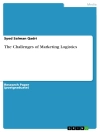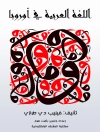This book explores the media and conflict relationship in the age of social media through the lens of China. Inspired by the concepts of medialization of conflict and actor-network theory, this book centers on four main actors in wars and conflicts: social media platform, mainstream news organizations, online users and social media content. These four human and non-human actors associate, interact and negotiate with each other in the social media network. The central argument is that social media is playing an enabling role in contemporary wars and conflicts. Both professional media outlets and web users employ the functionalities of social media platforms to set, counter-set or expand the online public agenda. Social media platform embodies a web of technological and human complexities with different actors, factors, interests, and power relations. These four actors and the macro social-political context are influential in the medialization of conflictin the social media era.
– Daya K. Thussu, Professor of International Communication, Hong Kong Baptist University, Hong Kong
Innehållsförteckning
1. Introduction: Media and Conflict Studies in the Social Media Age.- 2. China’s Social Media Platforms: Weibo.- 3. Sino-Indian Border Crisis in 2017.- 4.Diaoyu/Senkaku Islands Dispute in 2017–2018.- 5. South China Sea Dispute in 2018.- 6. North Korea Nuclear Crisis in 2018.- 7. Conclusion.
Om författaren
Shixin Ivy Zhang (Ph.D. University of Leeds) is Associate Professor in Journalism Studies at University of Nottingham Ningbo China. She is the author of two research monographs entitled Impact of Globalization on the Local Press in China (2014) and Chinese War Correspondents: Covering Wars and Conflicts in the 21st Century (Palgrave Macmillan, 2016).












